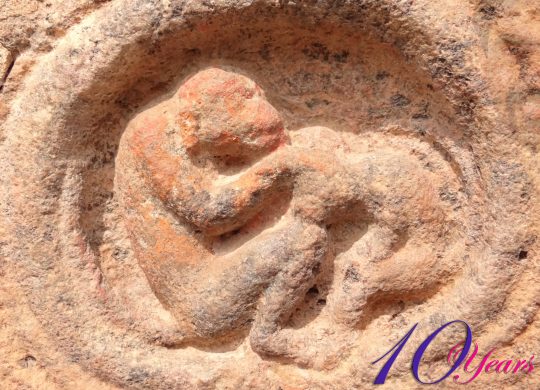Socializing?

“Motivational Shifts in Aging Monkeys and the Origins of Social Selectivity” was published recently in Current Biology, by researchers from the German Primate Center in Göttingen, Germany.
They studied non-social and social behavior of 118 Barbary macaques—a small monkey living in Europe and Northern Africa.
Non-social behavior was assessed by looking at the monkeys’ curiosity to explore new things like animal toys and such. Animals in their early adulthood and beyond quickly lost interest in these novel objects.
Social behavior was assessed by observing the reaction of the primates to photos of newborn monkeys, of “friends” (monkeys they were familiar with), and of “non-friends” (monkeys they were not familiar with).
Generally, older animals were more selective with whom they interacted and in whom they were interested.
Study author, Laura Almeling:
They had fewer ‘friends’ and invested less in social interactions. Interestingly, however, they were still interested in what was going on in their social world.”
The scientists think that this behavior is reflective of that in aging humans—the socioemotional sensitivity theory (SST) posits that this social selectivity with age is because they know their lifespan is limited.
Said Almeling:
SST assumes that this is so because elderly humans are faced with an increasingly limited future time perspective, motivating them to focus on the most important things. However, because monkeys do not have the same self-awareness of their own lifespans as we do, they could become more selective for different reasons than humans.”
The paper suggests, therefore, that the behavior of older people has deep roots in primate evolution. We have all—humans, monkeys, etc.—evolved to be socially selective as we get older. Apparently it has nothing to do with the recognition of the finitude of one’s days or one’s approaching death.
Concluded the researchers:
Taken together, then, the monkeys lose interest in new stimuli already at a fairly early age, and the focus of older animals is clearly on their social environment. In this, they are very similar to humans who become more selective as they get older. Our research demonstrates the importance of behavioral research in monkeys in order to gain a better understanding of human aging. The behavior of older people has deeper roots in primate evolution than previously thought. Motivational changes in old age do not seem to be primarily dependent on the awareness of a limited remaining lifetime.”
I don’t know about that, whether such selectivity is merely a function of a gene somewhere, but I know that the Bible does exhort us—humans, that is—to be selective in our socializations.
He who walks with wise men will be wise,
But the companion of fools will suffer harm.
Proverbs 13:20
Do not associate with a man given to anger; Or go with a hot-tempered man,
Or you will learn his ways And find a snare for yourself.
Proverbs 22:24–25
Yup, old or not, one has to be careful in one’s choice of friends, for …
Faithful are the wounds of a friend, But deceitful are the kisses of an enemy.
Oil and perfume make the heart glad, So a man’s counsel is sweet to his friend.
Proverbs 27:6, 9
Like a bad tooth and an unsteady foot Is confidence in a faithless man in time of trouble.
Proverbs 25:19
On the other hand, there are good friends:
A friend loves at all times, And a brother is born for adversity.
Proverbs 17:17
A man of too many friends comes to ruin,
But there is a friend who sticks closer than a brother.
Proverbs 18:24
There’s more to life than genes!












 Abe Kuruvilla is the Carl E. Bates Professor of Christian Preaching at The Southern Baptist Theological Seminary (Louisville, KY), and a dermatologist in private practice. His passion is to explore, explain, and exemplify preaching.
Abe Kuruvilla is the Carl E. Bates Professor of Christian Preaching at The Southern Baptist Theological Seminary (Louisville, KY), and a dermatologist in private practice. His passion is to explore, explain, and exemplify preaching.